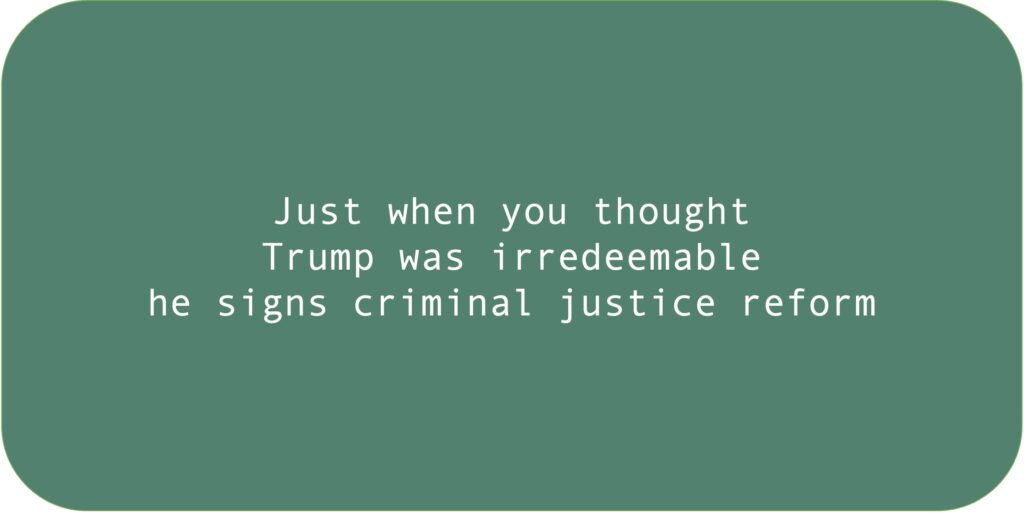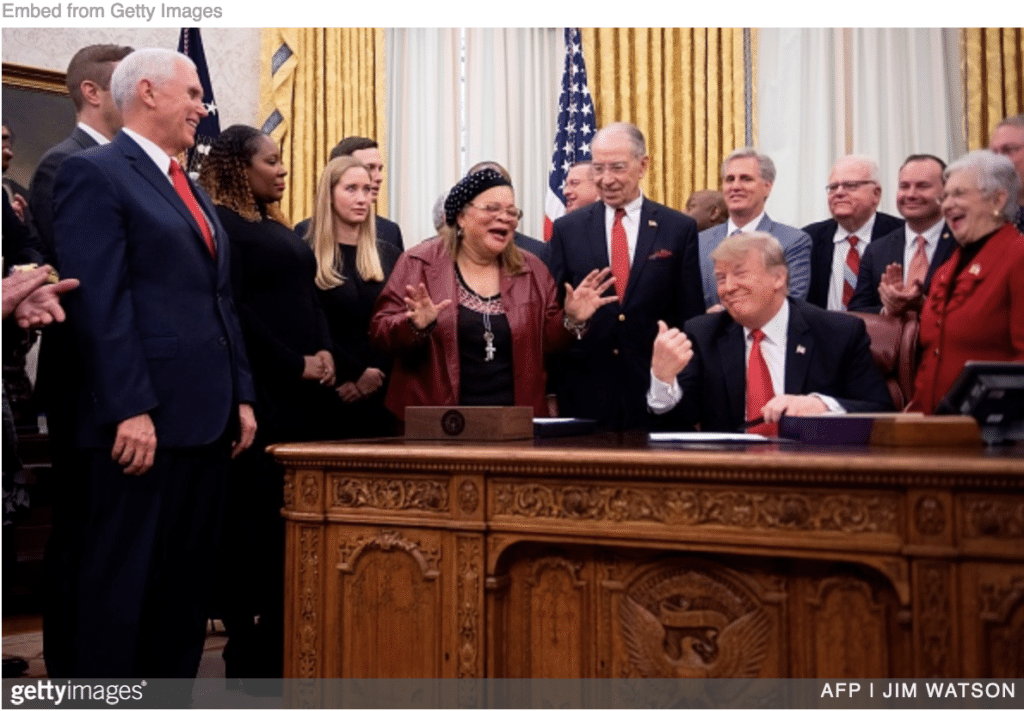
Donald Trump doesn’t have much to commend in his presidential legacy, but criminal justice reform stands out.
Trump’s criminal justice reform
The legislation signed by President Donald Trump on Friday makes big changes to the treatment and rehabilitation of low-level federal prisoners.
The new law, called the First Step Act, retroactively applies changes Congress made to drug sentencing laws in 2010, which experts say will allow between 4,000 and 6,000 current prisoners (included in the 53,000 estimate) to immediately qualify for supervised release programs.
(McClatchy News, December 21, 2018)
This Act applies only to a fraction of the 225,000 inmates in the federal prison system. In other words, none of the 1,933,000 serving equally unfair sentences in state and local prisons will benefit.

Even so, Trump deserves praise for this legislative milestone. And I’m happy to give it to him.
Obama’s ‘first step’
Throughout his presidency, Obama tried to take this first step. But congressional Republicans refused to support him. Of course, they support this step wholeheartedly. In other words, like confirming justices to the Supreme Court, Republicans are only interested in enacting criminal justice legislation if a Republican president can claim credit.
But I hailed Obama’s pioneering efforts in “Black Users of Crack vs. White Users of Powder Cocaine” on November 3, 2011. In it, I lamented my years-long championing of this criminal justice reform by citing “The Real Drug War: Crack vs. Powder Cocaine” on August 10, 2010.
And again, I hail Trump’s efforts as one small step for criminal justice. But there’s no denying that it’s a giant leap for many black and Hispanic inmates.
They will get an early release from federal prison. And, from now on, they will have parity with Whites in sentencing for federal drug-related offenses.